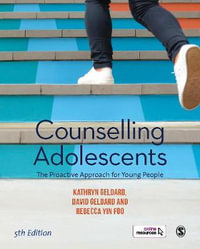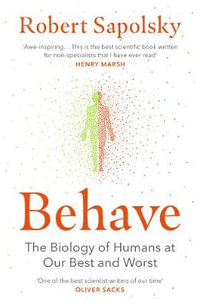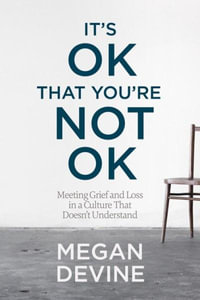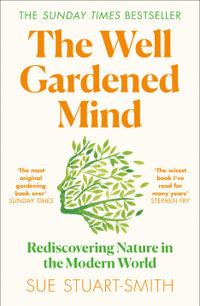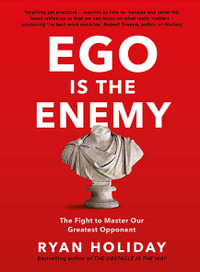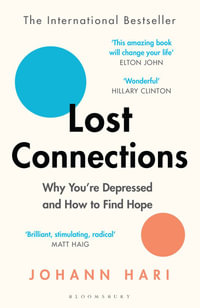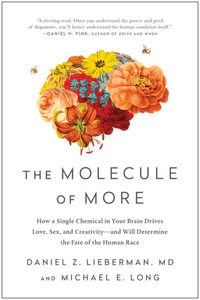The young psychiatrist from Budapest had studied medicine in Vienna, he had read The Interpretation of Dreams, and now he was about to meet its author. Seventeen years Sigmund Freud's junior, Sandor Ferenczi (1873-1933) sent off a note anticipating the pleasure of the older man's acquaintance--thus beginning a correspondence that would flourish over the next twenty-five years, and that today provides a living record of some of the most important insights and developments of psychoanalysis, worked out through the course of a deep and profoundly complicated friendship.
This volume opens in January of 1908 and closes on the eve of World War I. Letter by letter, a "fellowship of life, thoughts, and interests" as Freud came to describe it, unfolds here as a passionate exchange of ideas and theories. Ferenczi's contribution to psychoanalysis was, Freud said, "pure gold," and many of the younger man's notions and concepts, proposed in these letters, later made their way into Freud's works on homosexuality, paranoia, trauma, transference, and other topics. To the two men's mutual scientific interests others were soon added, and their correspondence expanded in richness and complexity as Ferenczi attempted to work out his personal and professional conflicts under the direction of his devoted and sometimes critical elder colleague.
Here is Ferenczi's love for Elma, his analysand and the daughter of his mistress, his anguish over his matrimonial intentions, his soliciting of Freud's help in sorting out this emotional tangle--a situation that would eventually lead to Ferenczi's own analysis with Freud. Here is Freud's unraveling relationship with Jung, documented through a heated discussion of the events leading up to the final break. Amid these weighty matters of heart and mind, among the psychoanalytic theorizing and playful speculation, we also find the lighter stuff of life, the talk of travel plans and antiquities, gossip about friends and family. Unparalleled in their wealth of personal and scientific detail, these letters give us an intimate picture of psychoanalytic theory being made in the midst of an extraordinary friendship.
Industry Reviews
"Freud's extensive correspondence with his disciples offers an inside vantage point on the psychoanalytic movement...[and] no colleague wrote to Freud on more intimate terms than Sandor Ferenczi...Absorbing...Like the first volume of the Freud-Ferenczi correspondence, Volume 2 has been meticulously prepared. Footnotes to each letter explain literary and biographical references, translate Latin phrases and occasionally even explain jokes. Axel Hoffer's introduction offers enough background to make this second volume worth reading on its own." --Kenneth Baker, "San Francisco Examiner & Chronicle""The second volume of the Freud-Ferenczi correspondence commences with the beginnings of World War I, and the events of that period form a background to the correspondence, which carries on through to December 1919. The letters, as in Volume 1, give a vivid and fascinating story of the interaction between Ferenczi and Freud, including Ferenczi's periods of analysis with Freud, and the intensely personal correspondence between the two." --"International Journal of Psycho-Analysis"
"This comprises the second volume of the three-volume collection of the Freud-Ferenczi correspondence, and should be of great interest to those wishing to chart the road of this rocky friendship. Brilliant moments of self-analysis and analysis are contained here, analyses that clash, fall apart, and reconstruct before the reader's eyes. The volume offers crucial insights into the psychoanalytic method and into the thin line between friendship and the analyst/analysand relationship." --"Virginia Quarterly Review"
"The experience of the Hungarian psychoanalyst Sandor Ferenczi as an almost combatant is well documentedhere...From a scholarly point of view, the correspondence is rich in its discussions of the major anthropological texts which Freud worked on during [World War I] as well as pragmatic questions of technique. Ferenczi's discussion of his own analytic work is such that this volume serves as a natural parallel to the published clinical diaries. And the deviations from 'orthodox' approaches are noted by Freud...The most fascinating part of the correspondence was its tone. Only in Freud's letters with Karl Abraham, who was very much more of his own generation, does one get the bantering quality which marks an exchange between equals...As with the first volume, this volume is the final result of a project begun by Michael Balint in the 1950s. The editing and notes are impeccable and the translation fluid. It is imperative that we continue to get such exchanges to clarify and document Freud's life and world. They will also have a wide range of other readers. When is volume three going to appear?" --Sander L. Gilman, "Medical History"
"An excellent introduction by the American analyst Axel Hoffer [to these letters] places the emotional interchange between Freud and Ferenczi (whose mutual creativity regarding analytic understanding flourished) in personal, historical, and professional context...An exciting read for all interested in the underpinnings of the cradle of psychoanalysis and the history of ideas, and for scholars interested in correspondence of the period." --"Choice"





